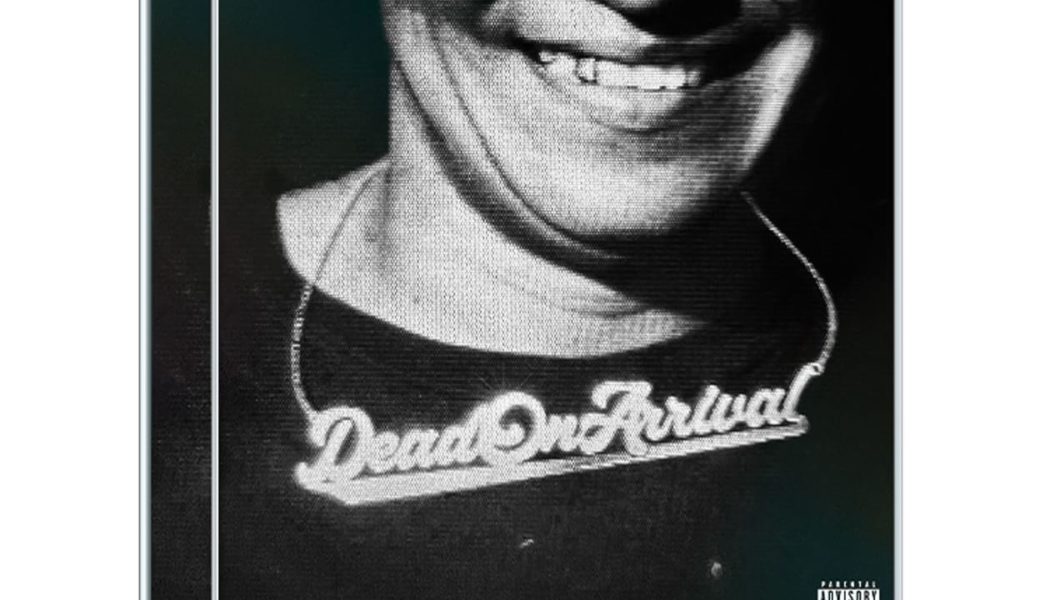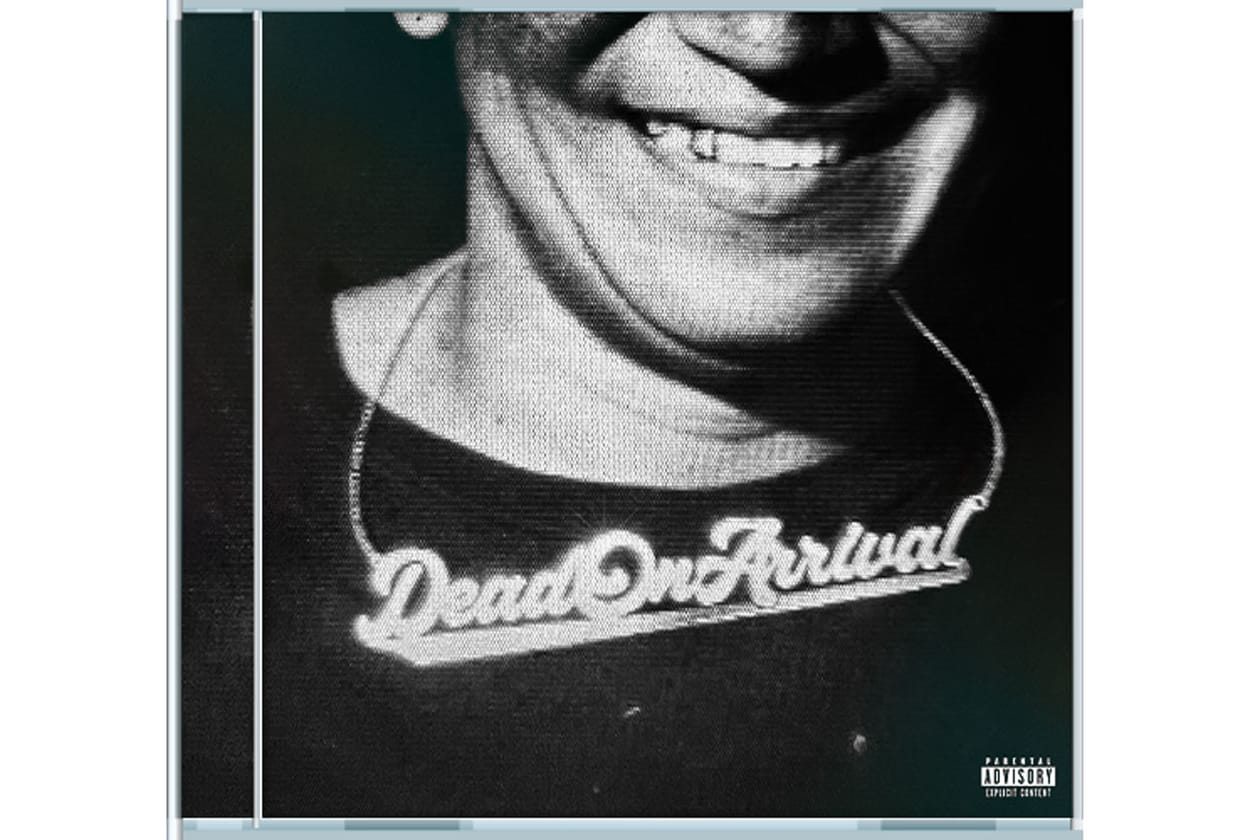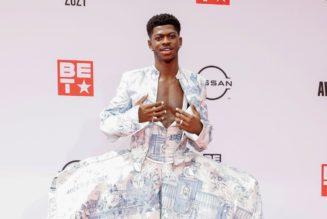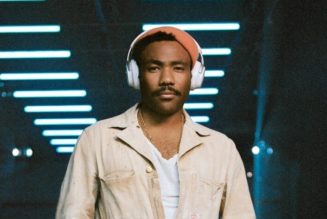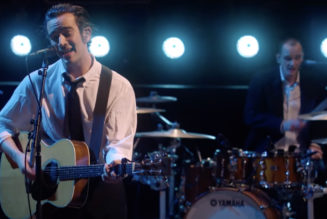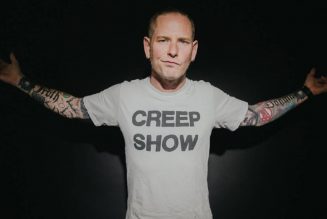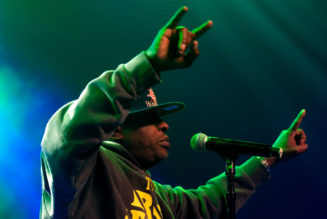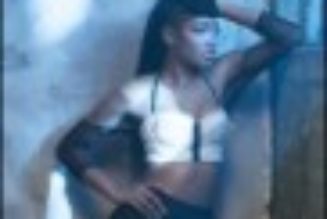A one-off encounter in Bushwick catalyzed the aesthetic of ericdoa’s DOA album. The 21-year-old Connecticut native stumbled across a woman named Jeni — standing outside with her hand-crafted clothing and household goods on a table before her — when he was walking in Brooklyn one winter day. “She just embodied the maternal spirit of Latin women,” Eric explained. “She reminded me of the strong Latin women who raised me.”
The genre-melding artist released his first album COA in 2020 but really gained traction after his “sad4whattt” single was placed on Euphoria’s season 2 soundtrack. He followed that up with his sophomore project things with wings, as well as a tour with The Kid LAROI, a headlining tour of his own and a viral VALORANT track dubbed “greater than one.”
On his third studio album, Eric wanted to pay homage to his heritage – specifically the Puerto Rican women who paved the way for his success. “I want people to listen to this album and know I was raised by two strong Latin women.”
With his second headlining tour in the books, Eric took time to reflect on how Boricua, and the badass women who make it vibrant, shaped him into the artist and person he is today.
How has your Puerto Rican background impacted your artistry?
I’m very, very, very inspired by my culture. Music, food, art, political movements, everything. My whole tour – the aesthetic, the stage design and even the album itself – is inspired specifically by a Puerto Rican socialist movement from the 1970s called the Young Lords. When I wasn’t making music the past year, I was reading a lot about the movement, and more largely, how it’s always been a fight for Puerto Ricans to be heard and accepted in society.
And how was that influence specifically felt on your last album, DOA?
It’s more the aesthetic of the culture that influenced me on DOA as opposed to the music itself. Don’t get me wrong, the music rocks but this album wasn’t intentional. I was just having fun and making music with my friends. A lot of people are scared of being perceived. I say that because I’m scared as f*ck of being perceived. On DOA I tried to be – or at least sound – as unafraid of perception as possible.
“You miss Summer ‘16? You’re 28.”
As a young artist, how do you avoid falling victim to the quest for social media virality?
It’s so fried. You can’t avoid it at this point. What makes me the most upset about TikTok and Instagram is when I see people in the comments saying like “I miss the old insert any artist here.’”So go listen to the “old artist” then. People are poisoned by nostalgia and it doesn’t let them move forward and evolve. They attach memories and moments to the art they consumed in the past to try and resuscitate the feelings they felt. You miss Summer ‘16? You’re 28.
How do you feel about the “hyperpop” label many give you?
You can call me whatever you want. Call me hyperpop. Call me indie. Call me alternative rap. People use these labels to make things easier to consume and talk about. Hyperpop just feels inauthentic without crediting the people it was built on – the LGBTQ+ community. Hyperpop was built on these people who had all odds stacked against them – trans women, queer women. These people like SOPHIE and Charli XCX were pushing the boundaries. I think it’s a bit egregious to put myself solely in the category of hyperpop.
Femininity is a huge theme of the project. Could you say more on that?
I became really into femininity and tapping into my own femininity over the course of making this album. I grew up really close with my mom and my sister. My dad was around but he worked a lot, so my mom and my sister really raised me. On the album cover, I really wanted to depict something that conveyed the Puerto Rican feminine experience.
Other inspirations?
The first thing that ever inspired me was The Scarlett Letter. It’s so simple but it’s just the perfect encapsulation of misogyny and it happened to really strike my numb 15-year-old brain. That novel is what inspired me to start creating and writing. I love video games. They were always an escape for me. Recently I’ve been super into video essays as well. I could listen to someone explain the lore of my current niche interest for hours. My current hyperfixation is linguistics.
Tell me more about how you selected the album cover.
I ran into this woman named Jeni while I was on a walk in Bushwick one day. I felt like she represented the plight of Latin women. She was outside by herself sewing and selling clothes and other household items, just doing what so many Latin women in America are trying to do every day: put dinner on the table for their families.
I wanted to depict something that paid tribute to the strong women who came before me — specifically, my Latin family, which has struggled so much to be equal within society. So, after I met Jeni and reflected on the encounter, I knew I had to use her on the cover. I took a photo of her with a nameplate necklace, which is a big part of Latin culture as well.
How do you want people to listen to this album?
Cheesing. That’s my main goal – for people just to be smiling the whole time they’re playing my song. I was cheesing when I made it and that’s how I want people to blast it. I always want my art to feel intentional and I think fans can tell when it is and when it’s not. Obviously, your fans are important people, but at the end of the day, making music is the most selfish thing on the planet that anyone could do, so why not pay attention to yourself when you’re doing it?
“Being a nice, respectful human is f*cking awesome. ”
What do you want listeners to take away from this album?
This project is about my personal growth and becoming an adult. My whole life I was inundated with media and music that emphasized treating women poorly and I want people to know that being a nice, respectful human is f*cking awesome. The stuff we’re fed as teenage boys can be awful and disparaging. I listened to a lot of underground rap and so many of those tropes I was subconsciously internalizing were so disrespectful and harmful.
Stream ‘DOA’ on Spotify and Apple Music now.
